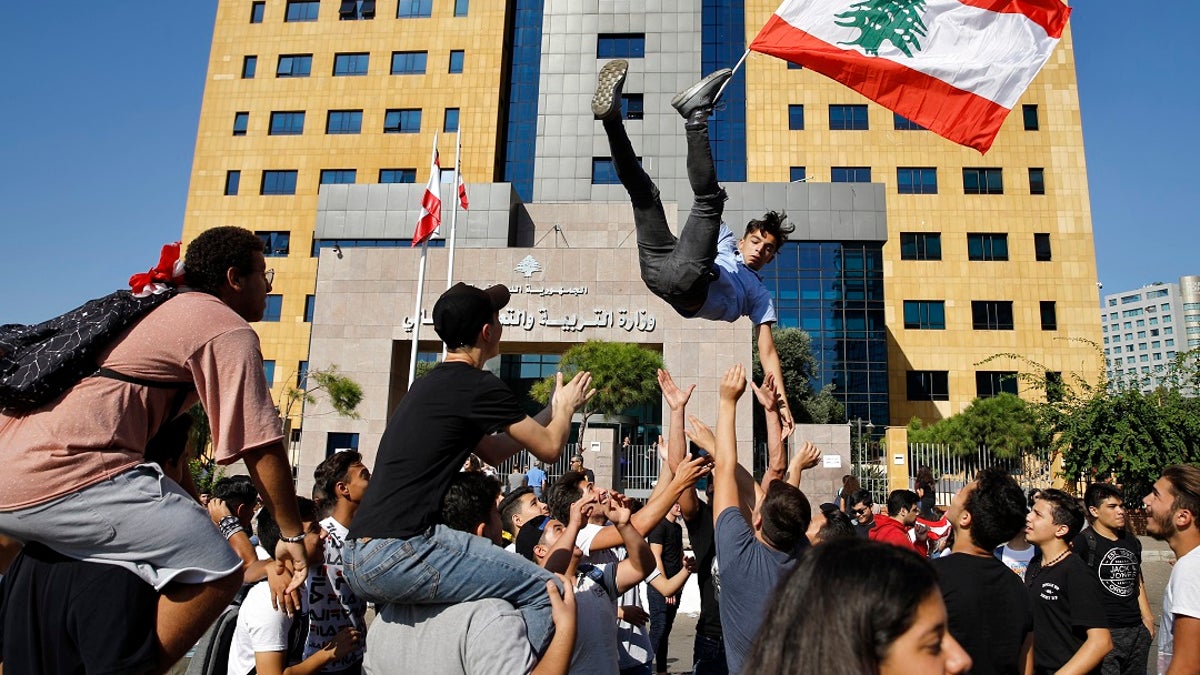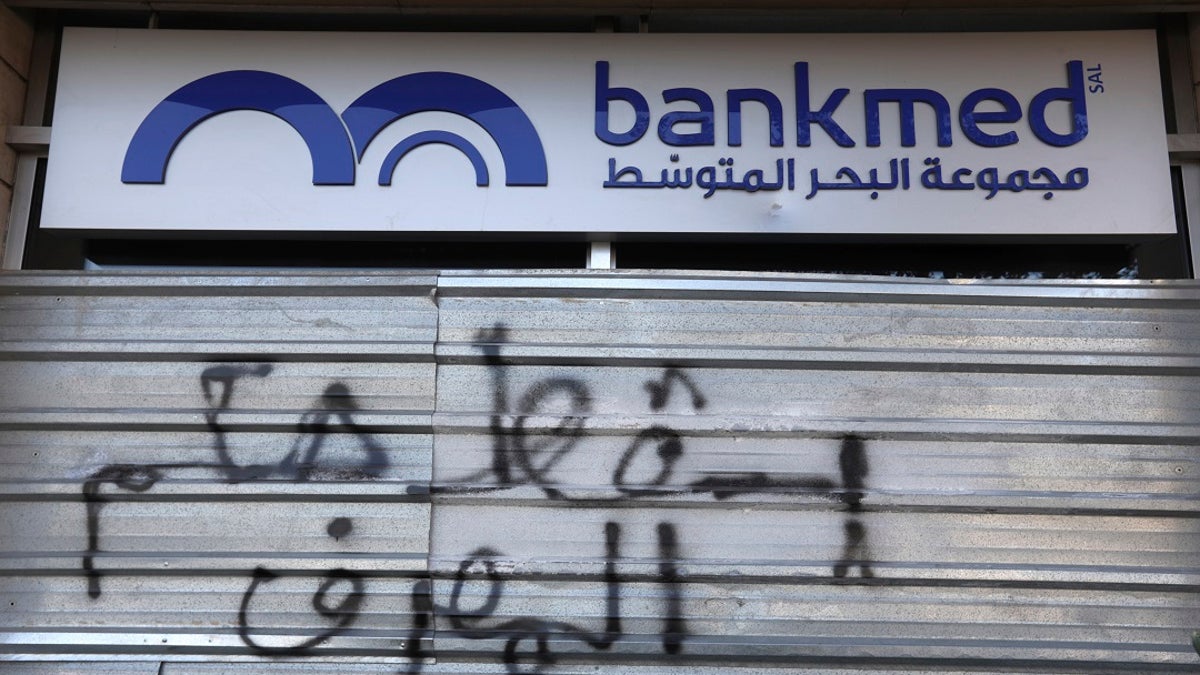Fox News Flash top headlines for Nov. 12
Fox News Flash top headlines for Nov. 12 are here. Check out what's clicking on Foxnews.com
A local Lebanese political official was killed by soldiers trying to open a road in southern Beirut Tuesday, the first death in four weeks of unrest and nationwide protests.
The unidentified man was a member of Lebanon's Progressive Socialist Party (PSP). An army statement said the man was shot in the Khaldeh neighborhood when a soldier opened fire to disperse a crowd near a road closed by protesters.
The soldier was arrested and the army is investigating the shooting.
Walid Jumblatt, leader of the PSP and a leader of the country's Druze community, told an angry crowd outside the hospital where the man died that "no one will protect us but the state."
LEBANON PARALYZED BY NATIONWIDE PROTESTS OVER PROPOSED TAXES

A student protester is thrown into the air by his colleagues in front of the education ministry in Beirut on Tuesday. (AP Photo/Bilal Hussein)
Tensions have mounted in Lebanon amid weeks of unprecedented protests sparked by an economic crisis, not the sectarian violence seen in previous conflicts in the Middle Eastern nation.
The demonstrations were initially triggered by a cash-strapped government proposal to tax calls made on messaging applications such as WhatsApp. The protests have expanded to calls for a new government and for political elites to step down.
Protesters closed a number of roads on Tuesday after President Michel Aoun said there could be delays before a new government is formed, adding that the best option is for a new Cabinet made up of both politicians and technocrats.
THOUSANDS OF LEBANON DEMONSTRATORS KEEP PRESSURE ON GOVERNMENT
Protesters have adamant that no politicians be included. Prime Minister Saad Hariri resigned with his government on Oct. 29 following the start of the nationwide demonstrations.
"I cannot say before the consultations end," he said when asked if he would form a new government.
Many protesters are demanding a government that would immediately work to implement reforms to halt Lebanon's worst economic crisis in decades.

Graffiti in Arabic reads "Down with the rule of the banks," on the front of a closed bank building in Beirut Tuesday. (AP Photo/Hassan Ammar)
CLICK HERE TO GET THE FOX NEWS APP
Before leaving office, Hariri said the messaging tax would generate around $200 million annually. The country has some of the highest mobile costs in the region, as it only has two state-owned providers.
Aoun warned protesters to not withdraw their money from banks, promising the funds will be "guaranteed." Banks were supposed to reopen Tuesday following a three-day closure but remained closed after employees went on strike, with some complaining of aggressive behavior from customers.
Fox News' David Aaro and The Associated Press contributed to this report.

